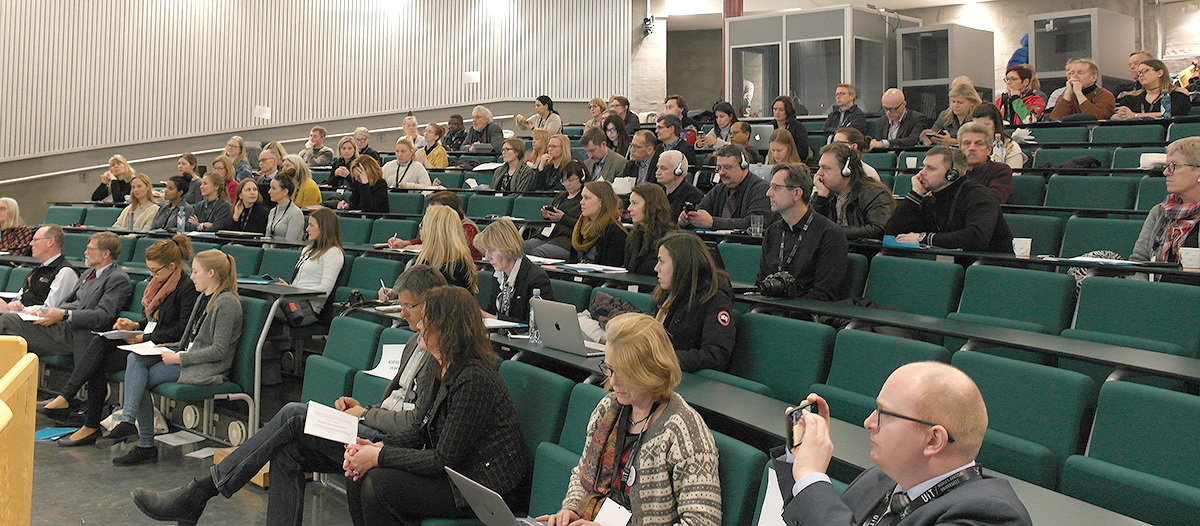The Centre for Arctic and Global Health at the University of Tromsø (UiT) hosted its second annual Global Health symposium.
Entitled, “Exploring Global Health in the Arctic”, the symposium was organized by the Centre in collaboration with the People’s Health Movement Scandinavia and Migra-Nord, UiT. Support was provided by the Norwegian Forum for Global Health Research / Global Health Norway.
Centre leader, Inger Scheel, opened the conference. She underlined the humanity we all share and the link between Global Health and security. Dean at UiT’s Faculty of Health Sciences, Thrina Loennechen, welcomed symposium participants on the part of UiT, which is celebrating its 50th Anniversary this year.
She reminded us that UiT is the northern most university in the world, with students and employees from nearly 100 different countries. Leonnechen also underlined that the neoliberalism discussions are also relevant to public health in Norway, as it is currently challenged by private initiatives.
According to the Centre website, “the symposium aims to advance the value of solidarity upon which the University of Tromsø is based. We hope to spur national debate in the field by discussing global health initiatives springing out of Tromsø’s academic and professional community, and the aspect of solidarity in responses to global health challenges driven by conflict, migration and neoliberal practices across the world.”
Beginning with a keynote presentation by Paul Farmer, from Harvard University, entitled, “Rights-based approaches to health in a commercialized landscape”, the symposium included an impressive, diverse programme of speakers spoke passionately about their work with disadvantaged groups in different parts of the world. It highlights a dynamic, engaged and active Global Health environment at UiT.
Global Health issues are real and growing and need our continuing investment of time, financial support and expertise, to keep building and strengthening local capacity.


